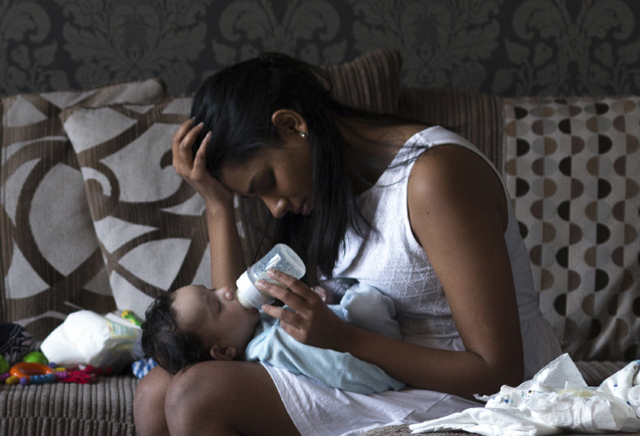
10 Important Tips On How To Cope With Post Partum Depression
- Ayo AL
- February 18, 2020
- How Tos, Living
- how to deal wit post natal depression, how to deal with post partum depression, ways to deal with post natal depression
- 0 Comments

Childbirth, caring for a baby and breatfeeding can be a very emotional experience and this is just the truth. If you are a new mother feeling depressed and unenergized, cut yourself some slack. Almost every new mum will feel this way.
Read The Inspiring Story Of Nigerian Woman Who Has Lived With Sickle Cell Anemia For 93 Years
There are also things you can do now to feel better. Here are 10 of them.
1. Trust your instincts
If you feel like something’s not right, it probably isn’t. So take your feelings seriously, and let someone know how you feel immediately. Finding the right place where you can be validated and supported is the very first step.
2. Cry if you have to
Your hormones are in full force during the third trimester, and after giving birth, your body is working to get them back to normal. One of the ways your body secretes hormones is through tears. You should know that it’s actually good to cry, because it’s your body’s natural way to get out your hormones.
3. Breastfeed only if you are up to it
Yes, you heard that right- Only if you can or want to. According to a recent study in the International Journal of Psychiatry in Medicine, women who breastfeed for two or four months were less likely to have the disorder. Yet breastfeeding can also make postpartum depression worse if you’re unable to do it or don’t want to.
4. Have enough sleep
With a new baby, sleeping for a long stretch of time may sound like a dream, but it’s very important. Get your partner or another family member to help you at least every 2 days so you can get your needed rest. If that’s not doable, try to relax also when your baby takes a nap.
5. Re-evaluate your time
Realize that your 100 percent will need to be divided and it’s important to decide how you will divide up your time between work, your child, and all of your other responsibilities. Be realistic about how much you can actually take on, and talk with your partner about the expectations you both have.
6. Find friends
Arrange a play date or call a family member or friend to chat when you’re feeling down. Always have people around you except when you want your quiet time. Surround yourself with people who love you and not people who criticize or trouble you.
7. Eat healthy foods
Eating a balanced diet with food that will give you energy and avoiding alcohol and caffeine will help to keep you on an even level and help keep your emotions in check.
8. Exercise
It’s not easy to move when you’re feeling blue, but the endorphin boost you get from a workout has been shown to ease depression, so head to the gym or go for a walk with your baby, jump a rope or do some sit ups. Yes!
9. Lean on your partner
Confiding in your spouse about how you’re feeling and what you need can be a great source of support and can even improve your relationship.






